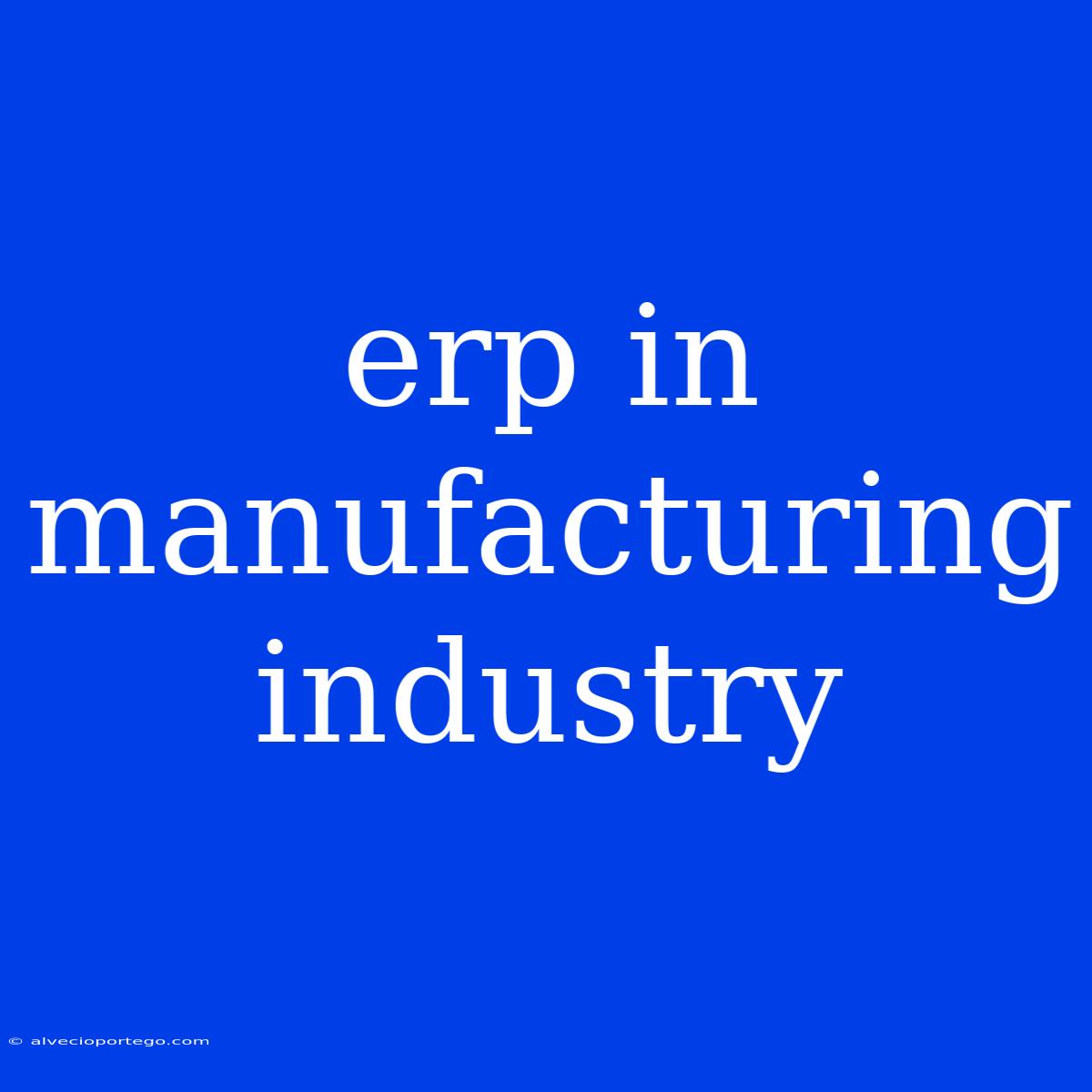ERP in Manufacturing Industry: Streamlining Operations for Success
The manufacturing industry is a complex ecosystem, characterized by intricate supply chains, intricate production processes, and demanding customer expectations. To thrive in this competitive landscape, manufacturers need to optimize their operations, enhance efficiency, and gain a competitive edge. Enter Enterprise Resource Planning (ERP), a powerful software solution designed to integrate and streamline various aspects of a manufacturing business.
What is ERP?
ERP systems act as a central nervous system for your manufacturing operation, integrating data from various departments and processes into a single, unified platform. This encompasses:
- Production Planning and Management: Streamline production schedules, manage inventory levels, and track material flow with real-time visibility.
- Inventory Control: Optimize stock levels, minimize waste, and ensure timely delivery of materials and finished goods.
- Quality Management: Implement robust quality control procedures, track defects, and ensure consistent product quality.
- Financial Management: Manage finances, track expenses, and generate accurate financial reports for decision-making.
- Sales and Marketing: Track customer orders, manage sales channels, and analyze market trends to drive growth.
- Human Resources: Manage employee data, payroll, and benefits, fostering a productive and engaged workforce.
Benefits of ERP in Manufacturing
Implementing an ERP solution can significantly benefit your manufacturing business, leading to:
- Increased Efficiency: Automated processes, real-time data visibility, and optimized resource allocation boost efficiency across the entire operation.
- Improved Productivity: Reduced downtime, streamlined workflows, and efficient resource allocation lead to higher productivity.
- Enhanced Quality Control: Robust quality management tools ensure consistent product quality, minimizing defects and customer complaints.
- Better Inventory Management: Accurate inventory tracking and forecasting enable manufacturers to optimize stock levels, reducing storage costs and minimizing stockouts.
- Reduced Costs: Optimized processes, minimized waste, and streamlined operations contribute to significant cost savings.
- Improved Decision Making: Access to real-time data and comprehensive reporting enables informed decision-making based on accurate insights.
- Enhanced Customer Satisfaction: Faster delivery times, improved product quality, and better customer service enhance customer satisfaction.
- Increased Agility and Flexibility: ERP systems provide manufacturers with the agility and flexibility to adapt quickly to changing market demands and production requirements.
Choosing the Right ERP Solution
The success of your ERP implementation depends heavily on choosing the right system that aligns with your specific needs and goals. Consider factors like:
- Industry Focus: Select an ERP system with specialized features and functionalities tailored to the manufacturing industry.
- Scalability: Ensure the system can handle your current and future growth, accommodating increases in production volume, product complexity, and customer base.
- Integration Capabilities: Choose a system that integrates seamlessly with existing systems and applications, minimizing disruption and ensuring smooth data flow.
- Cost and Return on Investment: Carefully evaluate the cost of the ERP system, implementation, and ongoing maintenance against the potential return on investment.
- User Friendliness: Select a system with a user-friendly interface that is easily understood and navigated by your team.
Conclusion
ERP systems are instrumental in driving success in the modern manufacturing industry. By streamlining operations, optimizing processes, and providing valuable insights, ERP empowers manufacturers to enhance productivity, reduce costs, and gain a competitive edge. Carefully evaluate your needs, select the right system, and implement it strategically for a successful and profitable journey towards manufacturing excellence.

